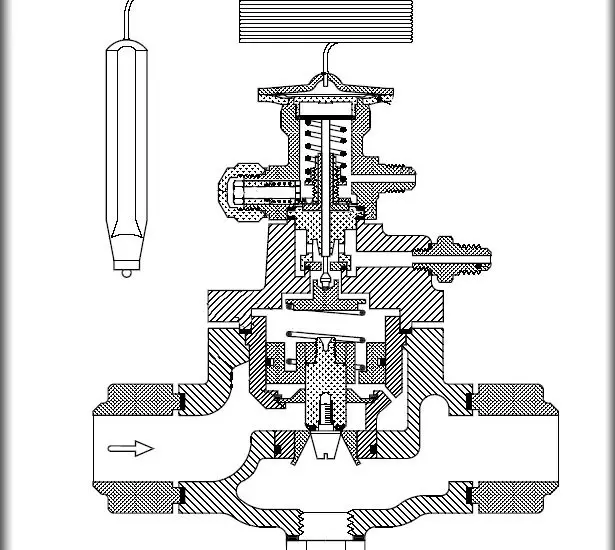Experiencing issues with your cooling or refrigeration system? It might be due to your expansion valve stuck closed symptoms. These symptoms, if not promptly addressed, could lead to more significant issues. In this guide, we provide a detailed breakdown of these signs, ensuring you can identify and rectify them.

Table of Contents
1. Reduced Cooling Efficiency
One of the first signs you might encounter is reduced cooling efficiency. Since the valve controls the refrigerant flow, a malfunction means the cooling system cannot maintain its optimal performance. Your rooms might take longer to cool, or your refrigerator might not keep your food as cold as usual.
If left unchecked, this inefficiency doesn’t just compromise comfort or food safety but also leads to higher energy consumption, translating to higher utility bills.
2. Compressor Overheating
The compressor is like the heart of your cooling system. When the expansion valve is stuck closed, the compressor works overtime, trying to pump refrigerant through a blocked pathway. This excessive work can cause it to overheat.
Overheating compressors are not just a symptom; they can become a more significant problem, as they may fail entirely, demanding expensive repairs or replacements.
3. Abnormal Noise from the Unit
A well-functioning cooling or refrigeration system should operate relatively quietly. If your expansion valve is stuck, the blockage might lead to unusual noises like hissing, bubbling, or even banging sounds.
These sounds often indicate that the system is straining, which can cause further damage if not addressed.
Check out these other related articles…
Expansion Valve Adjustment in 6 Easy Steps
Expansion Valve Orifice: A Comprehensive Guide
Electronic Expansion Valve Troubleshooting: Easy 411 Guide
How to Replace Expansion Valve: The Ultimate DIY Guide
Expansion Valve Not Working: Fixed in 5 Easy Steps
4. Frost Build-up on the Evaporator Coil
A clear sign of a malfunctioning expansion valve is frost accumulating on the evaporator coil. When the valve is closed, the refrigerant’s restricted flow can cause the coil’s temperature to plummet.
This drop can lead to moisture on the coil turning into frost. Frost can hinder the coil’s ability to absorb heat, reducing the system’s overall efficiency.
5. Elevated Pressure in the System
By checking your system’s pressure, you can often detect issues with the expansion valve. A stuck valve can cause pressure to build up in the refrigerant lines.
If you have a pressure gauge or system diagnostics, consistently high readings indicate a possible blockage in the system, which may very well be due to the expansion valve being stuck closed.